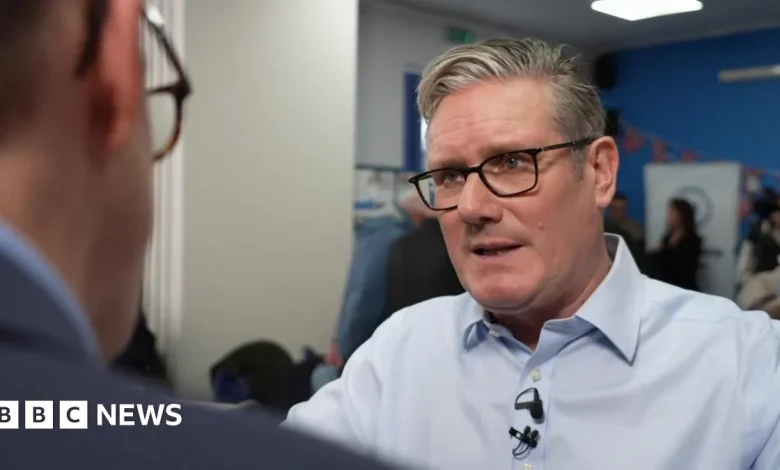Starmer could have scrapped child benefit cap last year – why did he wait?

Government figures argue these tax rises have a morally just purpose. Some will agree with that, others won’t.
But it is unquestionably politically different from where they were.
Was it evidence, I suggested to the prime minister, that his mantra of “country first, party second” had now been reversed?
Take the two child cap. While getting rid of it commands huge if not universal support among Labour MPs, opinion polls suggest keeping it would be popular.
Was the Budget about a politically vulnerable prime minister and chancellor shoring up support among their own MPs, who fret that the government – and by extension them – are deeply, deeply unpopular?
There is no doubt that was part of their – perfectly rational – political calculation.
“It’ll go down well with the PLP,” one minister told me, referring to the Parliamentary Labour Party, knowingly nodding to the prospect that a wider audience around the country may be more sceptical.
The prime minister insisted to me it was the first principles that motivated him – driving down child poverty, improving the NHS and schools.
But both things can be true at the same time.
“We’ve got to show that we get it,” one senior adviser tells me.
They characterise the government’s current posture as doubling down on focusing on the cost of living.
“Living standards are squeezed and have been for ages and ages. Nearly 20 years. This is the politics of trying. And showing that we are trying – via various levers – to make a difference,” a cabinet minister tells me.
Hence the focus in the Budget on energy bills, rail fares and the costs of a prescription, for instance.
Labour MPs, for now, seem willing to at least give the prime minister and the chancellor the benefit of the doubt.
Others are much more positive, glad to have something they believe in they can sell on the doorstep.
The prime minister wants to sound upbeat without sounding detached.
“I’m optimistic about this country. I think by putting in the proper foundations, taking the fair and necessary decisions, we can defy all of the forecasts,” he tells me.
He knows defying the gloomy economic forecasts will be key to him defying the gloomy political forecasts, with many of his own MPs privately pondering how long he should carry on if the government continues to remain so unpopular with voters.
An improvement in the government’s popularity, and therefore their own popularity, is what they really crave.





